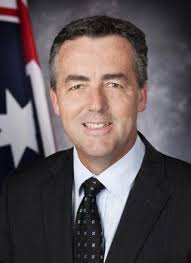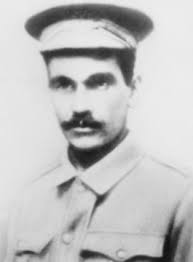THIS National Reconciliation Week, all Australians are encouraged to learn about our nation’s shared history, cultures, and achievements, and to explore how each of us can contribute to achieving reconciliation.

Minister for Veterans’ Affairs and Minister for Defence Personnel Darren Chester said Reconciliation Week provided an opportunity to reflect on the service of Aboriginal and Torres Strait Islander people and their contribution to Australia’s wartime history in every war and conflict since the Boer War at the turn of the twentieth century.
“This year’s theme for National Reconciliation Week ‘In This Together’ is a perfect representation of how Indigenous men and women have served our nation alongside non-Indigenous men and women for more than 120 years,” Mr Chester said.

It’s estimated that at least 1000 Aboriginal and Torres Strait Islander people served during the First World War despite regulations that discouraged their enlistment. In the Second World War more than 3000 Aboriginal and Torres Strait Islander people served.
“One of those who served in the First World War was Corporal Harry Thorpe, from my electorate of Gippsland, who enlisted in February 1916 and arrived on the Western Front later that year,” Mr Chester said.
“During his service Harry was involved in the operations near Ypres in Belgium and was involved in the dangerous job of seeking out German infantry hiding in dugouts and pill boxes — his great courage and leadership earned him a Military Medal and a promotion to Corporal with his citation reading, “By his splendid example and disregard of all danger he inspired those under him”.

“On 8 August 1918 the Allies began their major offensive and the following day Harry was wounded for the third and final time. Corporal Harry Thorpe is buried in the Heath Cemetery in France, alongside his friend and fellow Indigenous soldier Private William Rawlings, another Military Medal recipient who was killed on the same day.”
Sadly, Aboriginal and Torres Strait Islander people were not even classed as Australian citizens until 1967, but that didn’t stop them from serving their country with honour and distinction.
“While wearing the uniform Indigenous men and women were treated with respect and dignity, however, tragically this was not the case in their civilian lives,” Mr Chester said.
“Today, I am proud that the Australian Defence Force boasts more than 1800 full-time permanent Australian Defence Force (ADF) members who identify as Indigenous, which represents 3.1 per cent of the total permanent ADF workforce. This is up from 2.8 per cent last year.
“To those Aboriginal and Torres Strait Islander people who have served, and are currently serving, I say a simple and heartfelt, ‘thank you for your service’.
“Over the course of National Reconciliation Week, I encourage all Australians to take a moment to pause and reflect on the service and sacrifice of Indigenous service men and women in times of war, conflict and peacekeeping operations.”
Powered by WPeMatico
Recent Comments